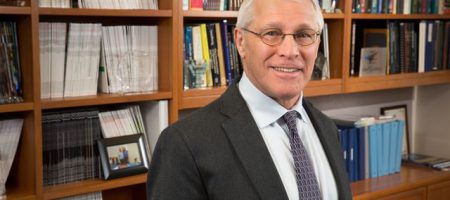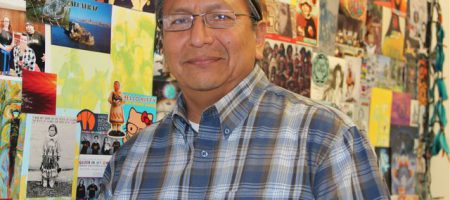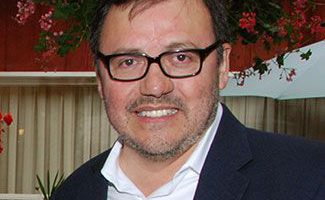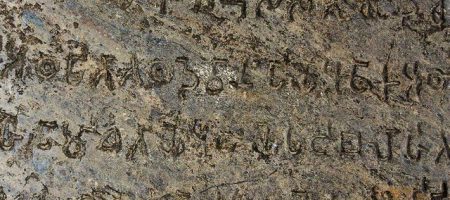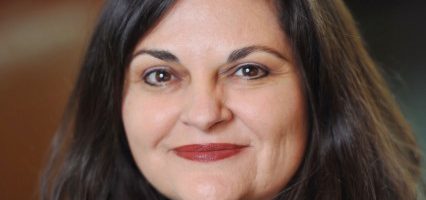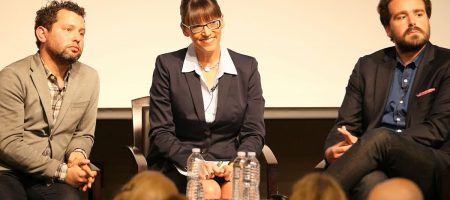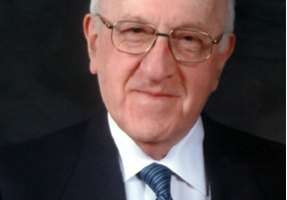By: Todd Presner, Sady and Ludwig Kahn Director, UCLA Alan D. Leve Center for Jewish Studies
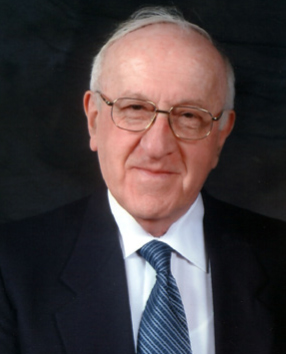
Arnold Band, Professor Emeritus of Hebrew and Comparative Literature, University of California at Los Angeles, delivered the Annual Arnold Band Distinguished Lecture in Jewish Studies, on May 12th to a crowd of 150 people at UCLA. Coinciding with Israeli Independence Day, the lecture was sponsored by the UCLA Alan. D. Leve Center for Jewish Studies, and honors the research and teaching of Band, one of the leading scholars of modern Hebrew literature in the world. His lecture was entitled: “The First Decade of Israeli Literature: The Case of Aharon Appelfeld.” Rabbi William Cutter, Steinberg Emeritus Professor of Human Relations at Hebrew Union College, moderated and gave a response.
Band, 86, has taught at UCLA for over 50 years. He founded the department of comparative literature and also established the recently endowed Alan D. Leve Center for Jewish Studies and was the first director of the UCLA Y&S Nazarian Center for Israel Studies. Band is the author of Nostalgia and Nightmare: The Fiction of S.J. Agnon (1968) and The Tales of Nahman of Bratlav (1978), as well as more than 125 articles in Hebrew and English on a wide range of topics in modern Jewish literature and Jewish cultural life. Center Board member and major donor, Alan D. Leve, said “I’m delighted that on this Israeli Independence Day the Center presented a program with distinguished professor Arnold Band, the Center’s founding director.”
The lecture was based upon research Band undertook at the US Holocaust Memorial Museum to investigate the nexus between Hebrew writers S. Y. Agnon and Aharon Appelfeld. He showed how the writing styles and themes of Nobel Prize laureate Agnon, widely considered the leading Hebrew prose writer of the 20th century, influenced the literary works of Appelfeld, who is universally recognized as the most significant Holocaust writer in Hebrew.
Far from forgotten or ignored, Band showed how the Shoah emerged as a central theme in Israeli literature during the crucial first decade of state formation. The history and memory of the Shoah was integral to Israeli collective identity, he argued, and this is reflected in the literary continuity shared between Agnon and Appelfeld. At the same time, Band suggested that the further we advance from the first decade, the more we realize that Israeli literature is more varied and richer than early historians have described it.
For the Leve Center for Jewish Studies, Band’s lecture caps an extraordinary year of programming that also saw the inauguration of a new series in the Archaeology of Ancient Israel. Organized by Aaron Burke (Associate Professor of the Archaeology of the Levant and Ancient Israel in the Near Eastern Languages and Cultures department and a faculty member with the Cotsen Institute of Archaeology, UCLA), the inaugural lecture drew nearly 100 people and was delivered by one of the founding figures in biblical archaeology, Professor Lawrence E. Stager (Harvard University), Dorot Professor in the Archaeology of Israel and former director of the Harvard Semitic Museum.
Expressing his appreciation of the work of the Leve Center, David Schaberg, UCLA Dean of the Humanities, said that “the Center’s diversity of programs in all aspects of Jewish Studies – from biblical times to the present-day – reflects the goals of the Center to educate, engage, and reach the broadest possible community.” He added that the “vibrancy of its programming is a testament to its strength and purpose as part of public research and teaching institution.”
Band’s lecture was made possible by a generous endowment by Leve Center Board Member, Milt Hyman, a former student of Band’s, and his wife, Sheila. Cosponsors included the UCLA Y. & S. Nazarian Center for Israel Studies and the UCLA Department of Near Eastern Languages and Cultures. More information can be found online: http://cjs.ucla.edu



